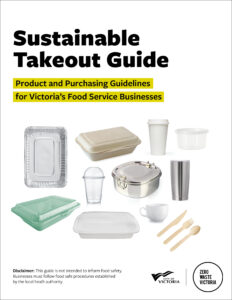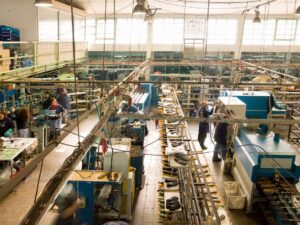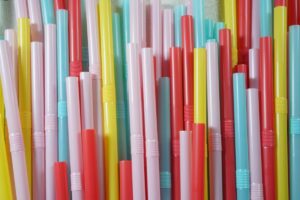Coronavirus: Soaring reliance on single-use plastics stalls B.C.’s zero-waste movement
Single-use plastics that were recently subject to growing municipal bans are now on the front lines of the COVID-19 response as retailers temporarily restrict the use of reusable items to help curb the spread of the coronavirus.
In Vancouver, the city’s first zero-waste grocery store is shifting to pick-up only after the pandemic halted its business model.
“The zero waste movement I think has definitely taken a hit in the last few weeks,” says Nada co-founder and CEO Brianne Miller.
With shoppers no longer able to fill their own containers from the store’s more than 800 package-free and bulk selections, Nada is offering customers free 100-per cent-recycled paper bags or jars for a deposit.
“We have a lot of increased labour costs,” Miller told Global News.
“It’s taking more time for our team to fill people’s containers instead of allowing our customers to do their own.”
Grocery chains have also banned reusable bags and instead provide carry-out bags, giving an unexpected boost to an industry that was facing wide bans on its product.
Grocery chains have also banned reusable bags and instead provide carry-out bags, giving an unexpected boost to an industry that was facing wide bans on its product.
Foster says the demand for plastic shopping bags has exploded and plastic plants are working around the clock to produce as many as possible.
Non-profit organizations working hard to reduce the use of single-use plastics say they hope the ban momentum isn’t stalled for long.
“A part of me was disappointed and frustrated,” marine biologist Elaine Leung told Global News.
“At the same time, I recognize that the health authorities are doing the best that they can.”
As the founder of Sea Smart, a charity that educates youth on environmental sustainability, Leung has witnessed the devastating impact of plastic pollution. Thousands of marine mammals die every year after ingesting or getting entangled in plastic packaging.
“All this plastic use does have long-term impacts,” says Leung.
Miller says she’s optimistic that the increased dependence on single-use disposables and plastic bags is only temporary and that consumers will eventually switch back to reusables.
The City of Vancouver banned single-use plastic straws last month and is still on track to ban plastic shopping bags next January, although enforcement of these bylaws is on hold until further notice.
COVID-19 has also delayed consultations on a national single-use plastics ban that was to start in 2021.



